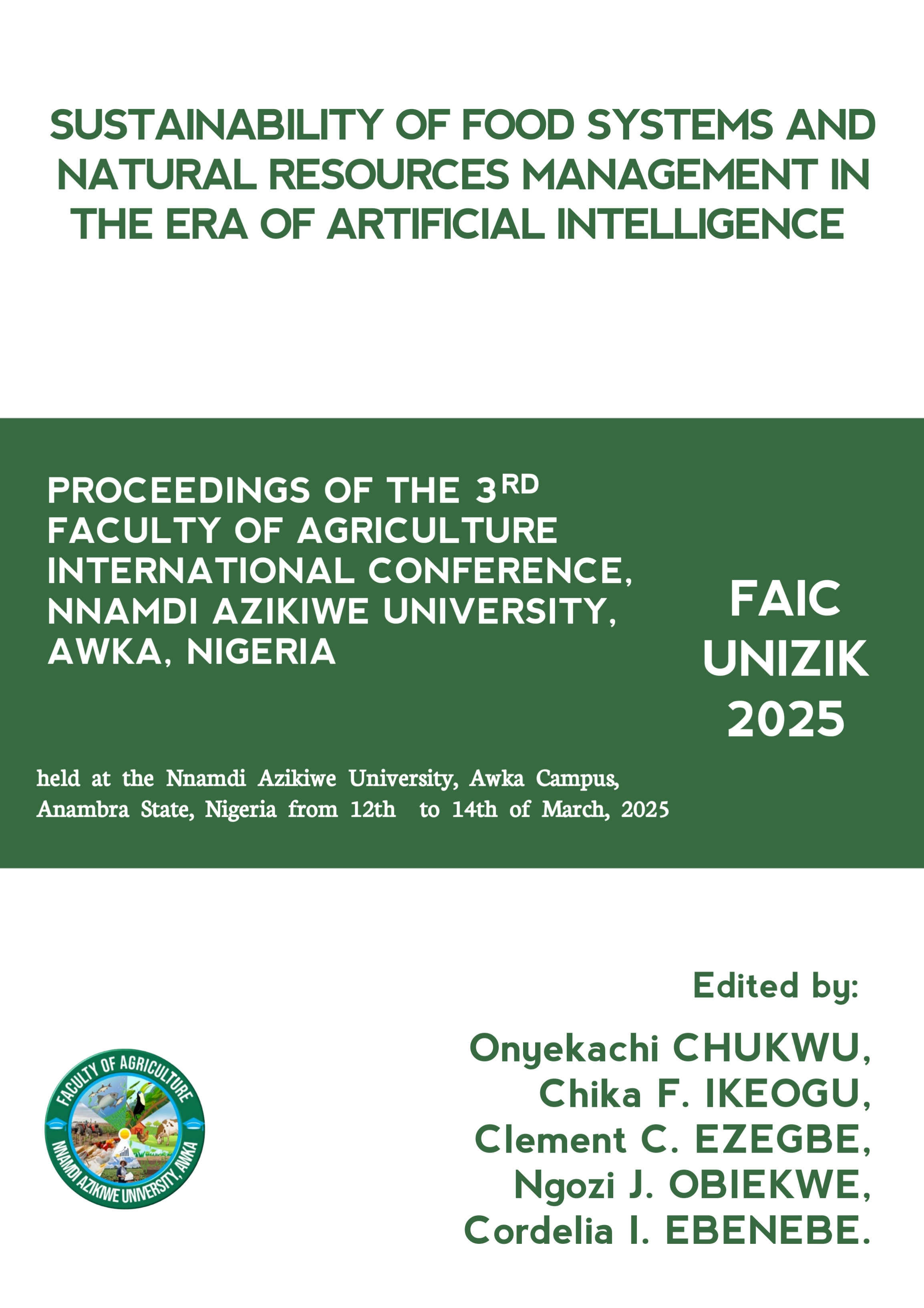Assessment of Stress Management For Women Poultry Farmers in Aguata and Awka Agricultural Zones of Anambra State, Nigeria
DOI:
https://doi.org/10.5281/xts5g942Abstract
Women poultry farmers play a critical role in food production in Nigeria, yet they face significant challenges that impact their mental and physical well-being, productivity, and the sustainability of their operations. The study described the socioeconomic characteristics of the women poultry farmers; identified the sources of stress among the respondents; ascertained the perceived effects of these on the respondents; and identified the coping mechanisms employed by the farmers to manage the stress. The study collected data from 60 respondents using questionnaire and interview schedule. Socio-economic characteristics of the respondents revealed that average age of the farmers was 37 years, with 58.33% of the respondents married and mean household size of 5 persons. The respondents had mean flock size of 76 birds and mean income of N200,500. Most farmers had attended 7-12 years of education (55%) and 51.67% accessed credit. About 80% of farms were family-owned, and 55% of respondents were members of cooperative society. The study identified major stressors as disease outbreaks (100%), unpredictable weather conditions (95%), feed price fluctuations (91.67%), market unpredictability (88.3%) and tedious waste disposal (81.67%). The major coping mechanisms adopted by the respondents were seeking support from family (73.33%) and diversification of farming activities (76%). Women poultry farmers in the study area face significant stress ranging from disease outbreak to exhaustion and effective stress management strategies will significantly alleviate their stress and enhance productivity. The study recommends for financial support through subsidies and grants, trainings, and provision of mental health services for the farmers.





